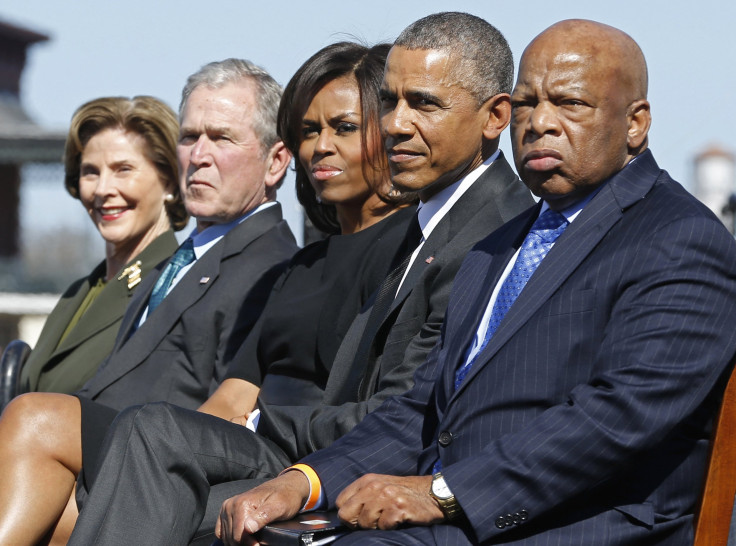Voting Rights Act Of 1965: Facts, Text Of Supreme Court Decision To Uphold Historic Law That Gave Black Southerners The Vote

Fifty years ago this year, the U.S. Supreme Court upheld the constitutionality of the historic Voting Rights Act of 1965, civil rights movement-spurred legislation that removed the barriers placed before African-American voters in the South and throughout the country. Those barriers — poll taxes, literacy tests and other unfair polling and voter registration practices — were outlawed with legislation enacted by Congress and signed by President Lyndon B. Johnson.
But the 1965 court challenge would not be the only attack on voting rights that the nation's highest court heard. Nearly 48 years after the Supreme Court rejected South Carolina v. Katzenbach, a challenge to Congress' authority to prescribe remedies for proven racial voter discrimination, the court gutted a central provision of the Voting Rights Act that mandated federal oversight of voting laws in states with a history of disenfranchising minority voters.
What changed in 2013's Shelby County v. Holder? Chief Justice John Roberts opined that the country had progressed enough socially that states such as North Carolina, Texas and Alabama no longer needed federal preclearance when amending their voting laws.
For contrast, here's a portion of the 1966 ruling rejecting South Carolina's challenge to the federal voting law:
Recognizing that the questions presented were of urgent concern to the entire country, we invited all of the States to participate in this proceeding as friends of the Court. A majority responded by submitting or joining in briefs on the merits, some supporting South Carolina and others the Attorney General. [n2] Seven of these States [p308] also requested and received permission to argue the case orally at our hearing. Without exception, despite the emotional overtones of the proceeding, the briefs and oral arguments were temperate, lawyerlike and constructive. All viewpoints on the issues have been fully developed, and this additional assistance has been most helpful to the Court.
The Voting Rights Act was designed by Congress to banish the blight of racial discrimination in voting, which has infected the electoral process in parts of our country for nearly a century. The Act creates stringent new remedies for voting discrimination where it persists on a pervasive scale, and, in addition, the statute strengthens existing remedies for pockets of voting discrimination elsewhere in the country. Congress assumed the power to prescribe these remedies from § 2 of the Fifteenth Amendment, which authorizes the National Legislature to effectuate by "appropriate" measures the constitutional prohibition against racial discrimination in voting. We hold that the sections of the Act which are properly before us, are an appropriate means for carrying out Congress' constitutional responsibilities, and are consonant with all other provisions of the Constitution. We therefore deny South Carolina's request that enforcement of these sections of the Act be enjoined.
To read the full decision, click here.
© Copyright IBTimes 2024. All rights reserved.






















